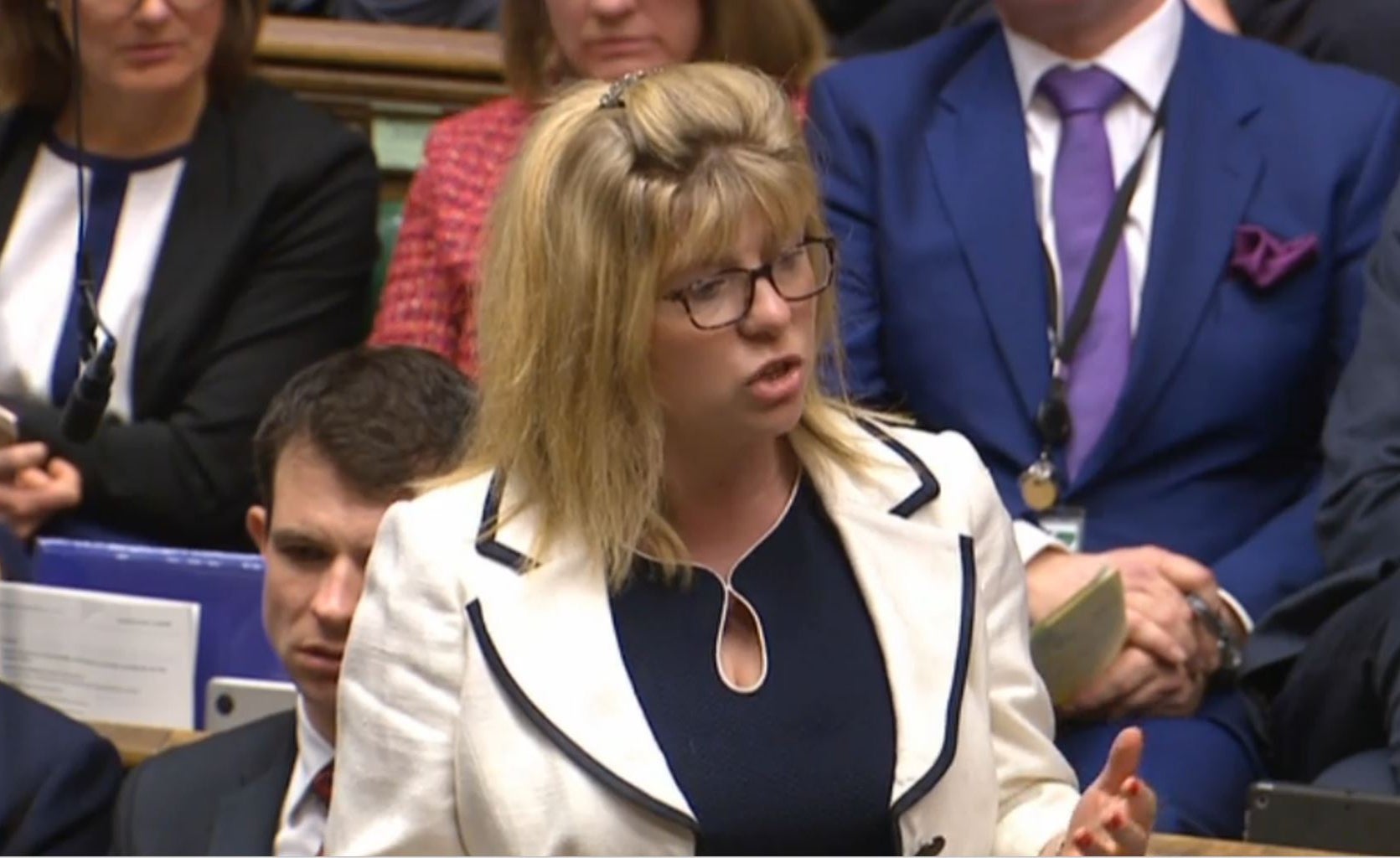Anger as MP who suggested cutting abortion time limit is made minister for women
Maria Caulfield also voted against legalisation of abortion in Northern Ireland and was officer of pro-life group
Your support helps us to tell the story
From reproductive rights to climate change to Big Tech, The Independent is on the ground when the story is developing. Whether it's investigating the financials of Elon Musk's pro-Trump PAC or producing our latest documentary, 'The A Word', which shines a light on the American women fighting for reproductive rights, we know how important it is to parse out the facts from the messaging.
At such a critical moment in US history, we need reporters on the ground. Your donation allows us to keep sending journalists to speak to both sides of the story.
The Independent is trusted by Americans across the entire political spectrum. And unlike many other quality news outlets, we choose not to lock Americans out of our reporting and analysis with paywalls. We believe quality journalism should be available to everyone, paid for by those who can afford it.
Your support makes all the difference.An MP who suggested cutting the 24-week abortion time limit and opposed “buffer zones” outside clinics is the new minister for women, sparking fierce criticism.
Rishi Sunak has been accused of a “deeply troubling” decision in appointing Maria Caulfield – a former officer of the all-party parliamentary pro-life group – to the post.
The Lewes MP has previously come under fire for arguing babies born at as little as 18 weeks “grow up to live long, healthy lives like the rest of us”, a claim dismissed as “simply untrue”.

She also wrongly denied there are prosecutions of women for ending a pregnancy without the approval of two doctors – and, in 2019, voted against the legalisation of abortion in Northern Ireland.
This month, Ms Caulfield joined a failed attempt, mainly by Conservative MPs, to prevent the creation of “buffer zones” outside clinics to protect women from anti-abortion protesters.
Katherine O’Brien, a spokesperson for the British Pregnancy Advisory Service, said: “We are absolutely appalled that the prime minister has decided to appoint as minister for women an MP who has consistently voted to restrict women’s rights.
“Maria Caulfield has previously stated that she wants to be a ‘voice for the unborn child’.
“A better choice for minister for women would be someone willing and able to speak up for the one in three women who will have an abortion in their lifetime – not an MP who would seek to impose a minority view on their access to healthcare.”
Anneliese Dodds, shadow women and equalities secretary, said: “It is deeply troubling that Rishi Sunak has appointed a minister for women who supports limiting women’s rights to abortion.
“The government must be clear and unequivocal that a woman’s right to a safe and legal abortion is not under threat.”

The criticism comes as Mr Sunak is already facing criticism for a “massive blind spot” after appointing a cabinet dominated by men.
Only about 23 per cent of those attending are women, down from almost a third in Liz Truss’s cabinet and lower than under Boris Johnson (24 per cent) and Theresa May (30 per cent).
No 10 also announced that Ms Caulfield will divide her duties as a junior minister between the health department – where she is minister for women – and the trade department.
In an interview in 2018, Ms Caulfield – then the Tory vice-chair for women – called the 1967 Abortion Act “one of the most liberal abortion laws in the world”.
“With medical advances, we’ve got babies born now at 18, 19 weeks. I think it’s something like 50 per cent of babies after 22 weeks are viable and yet abortion is still freely available up to 24 weeks,” she said.
“The 24-week limit was introduced at a time when babies were really not viable at 24 weeks. Now babies who are born premature grow up to live long, healthy lives like the rest of us.”
But a Cabinet Office spokesperson said: “The minister for women has a strong track record of delivering for women in her previous ministerial roles.”







Join our commenting forum
Join thought-provoking conversations, follow other Independent readers and see their replies
Comments